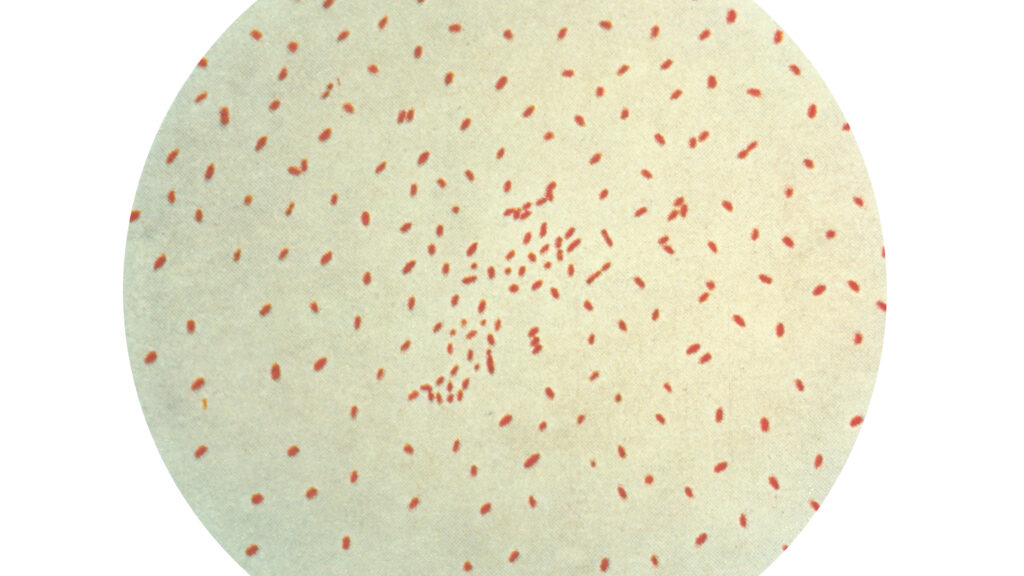Whooping cough cases are up sixfold from the same time last year in the U.S., affecting states ranging from Pennsylvania and New York on the East Coast to Wisconsin and Ohio in the Midwest and California and Washington out west.
Experts say the spike in cases is likely a return to the pre-pandemic cycle, in which cases of the illness would ebb and flow about every five years. But, some experts worry that a decline in vaccine uptake in the past several years could set this season to be more severe.
“It’s a big year, no doubt, but I don’t think it’s dramatically bigger than big years before the pandemic,” said Mark Sawyer, a professor of pediatrics at the University of California, San Diego. But, he added, “it’s a very, very contagious infection, so once it gets going, it does spread among susceptible people, and we may have built up a bigger susceptible population than we usually did.”
advertisement
Whooping cough is a bacterial infection known as pertussis, marked by a distinctive cough that can sound like “whoop.” The disease is often underdiagnosed or misdiagnosed because it can be confused with other respiratory infections.
Cases of the disease went down during the pandemic because people were social distancing and masking. This year, the CDC has recorded around 25,000 cases of pertussis, according to its most recent data. That’s well below the worst years of pertussis before the pandemic, but several times higher compared to the height of the pandemic. Cases fell to their lowest at around 2,100 in 2021.
Meanwhile, cases are still going up; the illness usually peaks during the late fall and winter.
“It’s always concerning to see an infectious disease affecting so many people. Preliminary cases reported to date in 2024 have not been this high at this time of year since 2014, but this is not unexpected,” a CDC spokesperson said by email.
advertisement
Physicians who treat whooping cough are most concerned when young babies, for whom it can be life threatening get the disease,. But adults can also contract the disease — and spread it to children who are susceptible. “Adults often don’t know they have pertussis,” said Andrew Pavia, a professor of pediatric infectious disease at University of Utah Health.
The recent uptick in cases isn’t surprising, said Tina Tan, a professor of pediatric infectious disease at Northwestern University’s Feinberg School of Medicine. But “what’s a little discouraging is the fact that some of this could be prevented if people have stayed up to date on their vaccinations, because that’s the best way to protect individuals against these vaccine-preventable diseases.”
There are two vaccines for pertussis: Tdap for older children and adults, and DTaP for infants. The immunity from these vaccines does not last long, typically waning after about three years. An older version of the vaccine, which was shelved because it led to more common reactions like a sore arm and fevers, offered protection for somewhere around five to ten years. The number of children with all four recommended doses of the DTap vaccine fell 2.5 percentage points from 2018 to 2021, according to recent CDC data.
Still, “in spite of the fact that our vaccines aren’t as good as they were 30 years ago, if we follow the rules, and see that children get vaccinated, or see that all pregnant women get vaccinated with each pregnancy,” cases would remain low, said James Cherry, a professor of pediatrics at the University of California, Los Angeles.
Several experts expressed concern that vaccine critics like RFK Jr., nominated to take over the Department of Health and Human Services under the incoming Trump administration, could threaten to make the next several years worse. “In spite of the skepticism about vaccines that seems to be spreading, there are a lot of important diseases out there that we can prevent and vaccines remain really important,” Pavia said.
advertisement
Tan, who is also the president of the Infectious Diseases Society of America, says it and several other major medical associations are working out how to address concerns surrounding the next administration.
“The important thing now, before very crazy things might come out, is that people take advantage of this time to get their vaccinations up to date and to access public health and medical care if they need it.”

